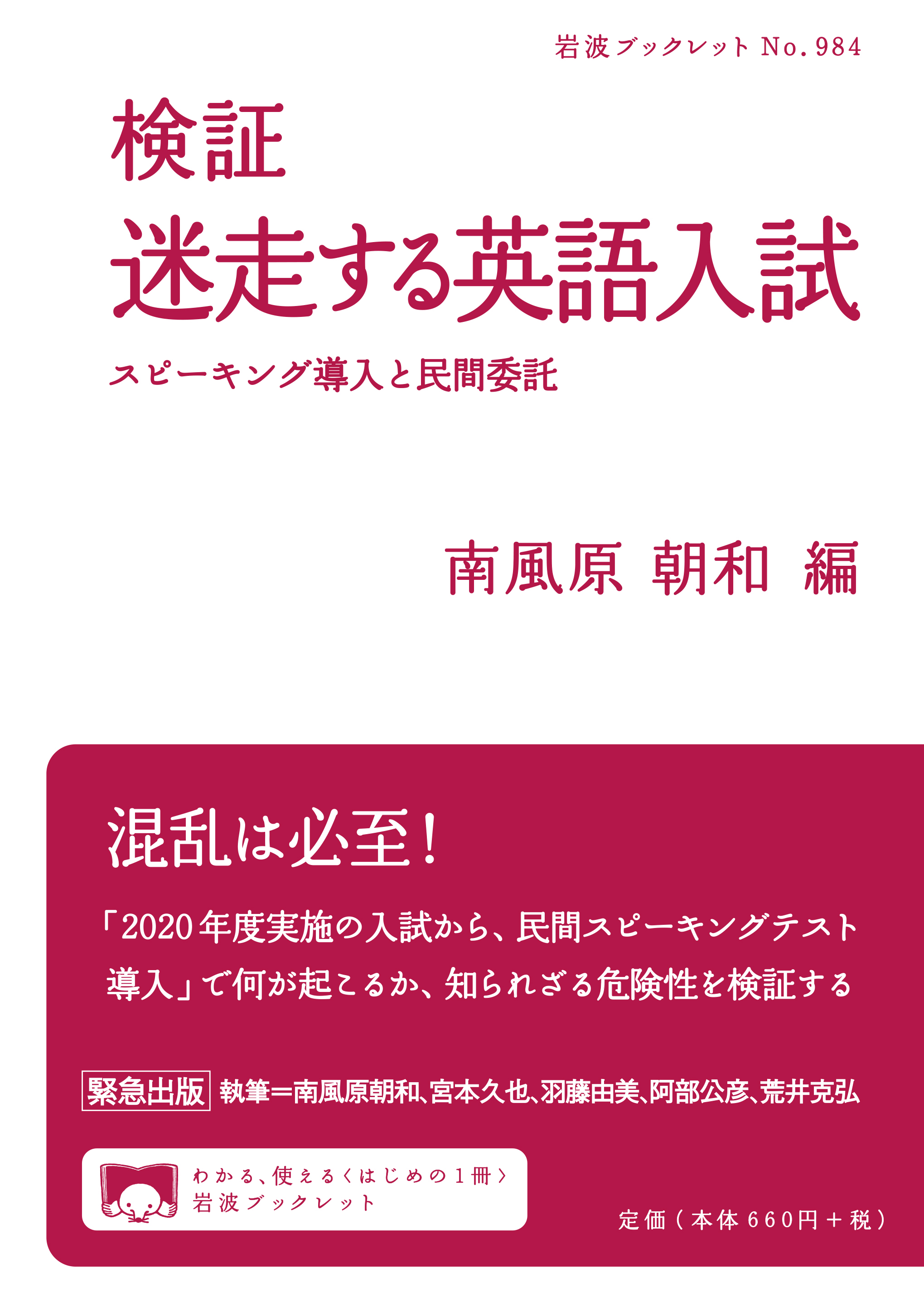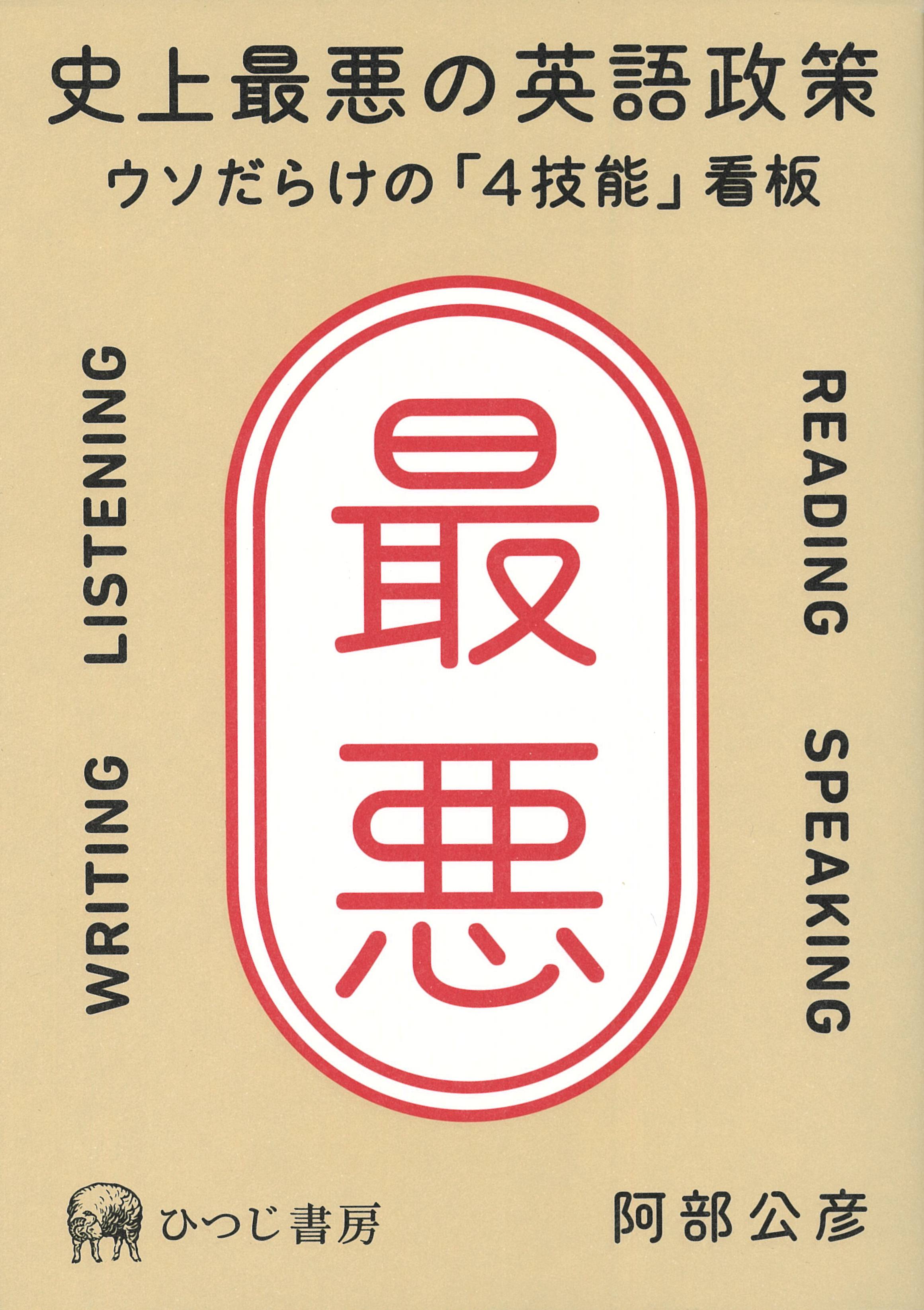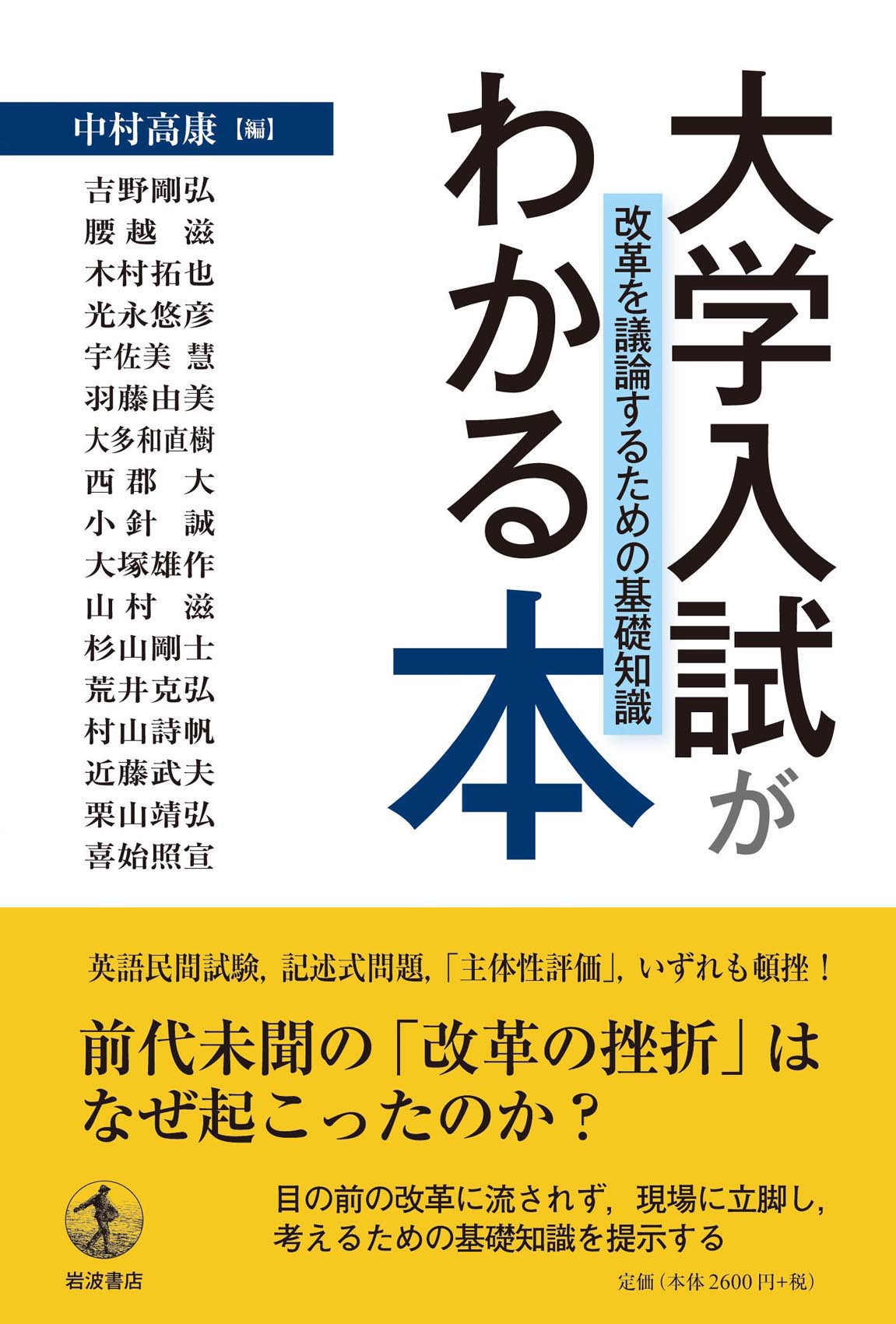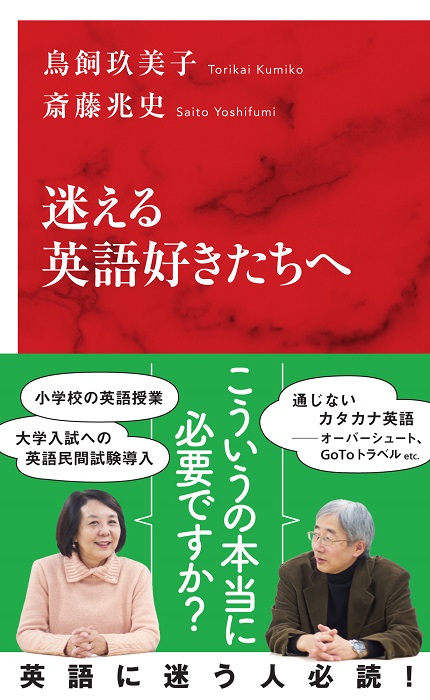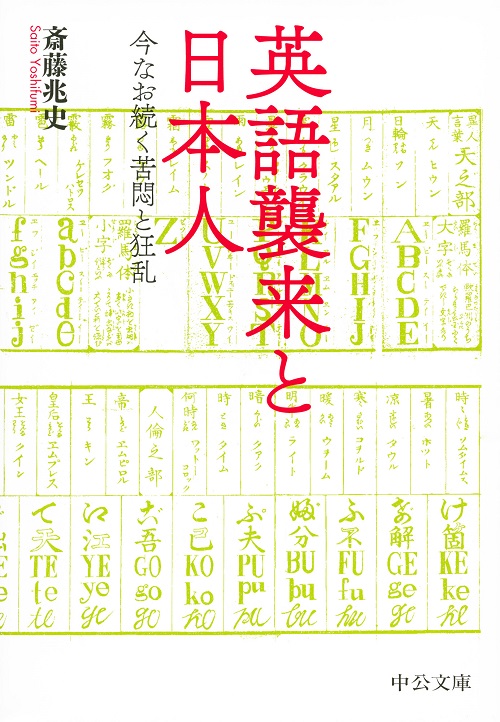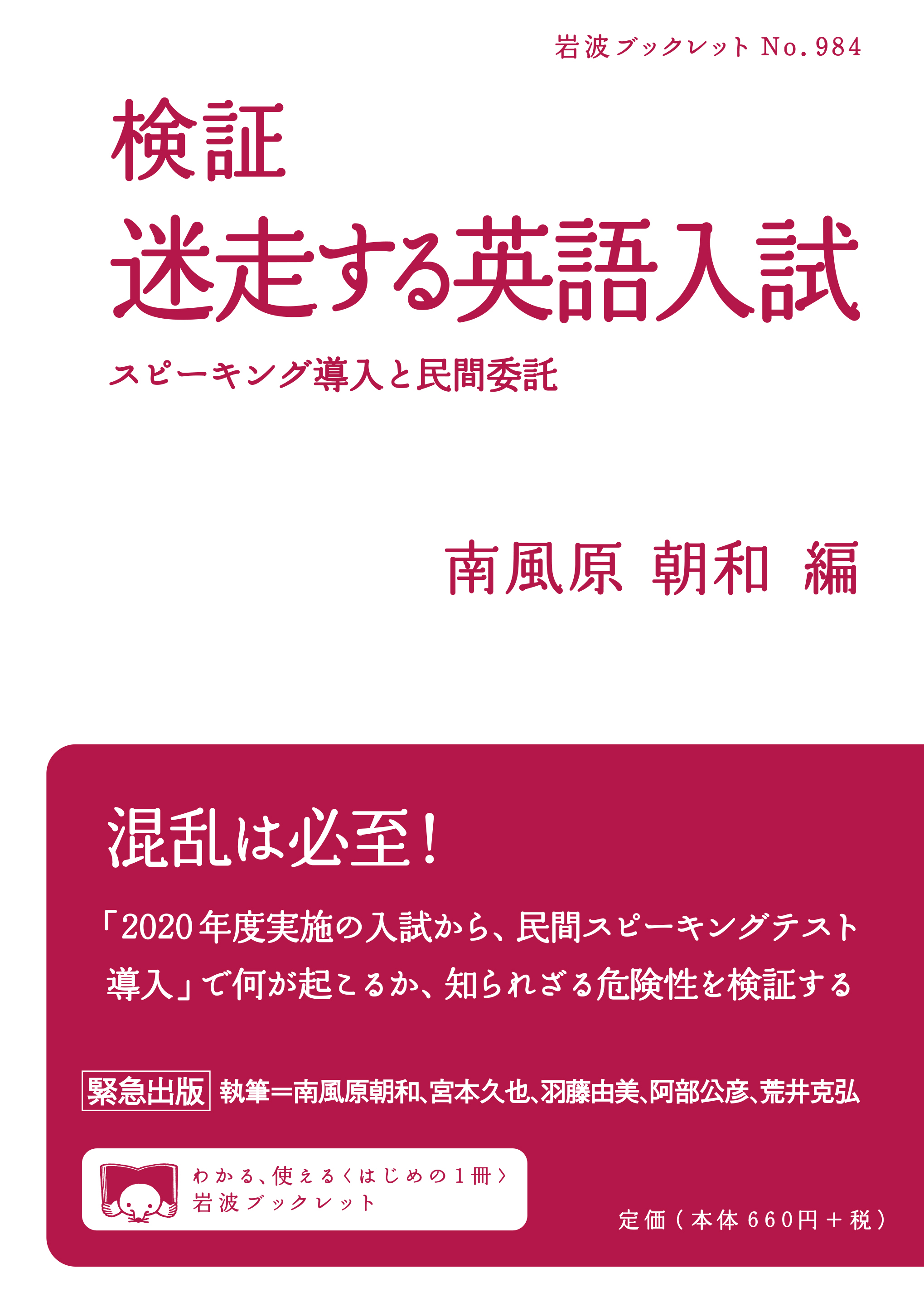
Title
Iwanami Booklet No. 984 Kensho: Meiso suru Eigo Nyushi (English Entrance Examinations Gone Astray: A Critical Investigation of the New Policy – Speaking Tests and Privatization)
Size
96 pages, A5 format, softcover
Language
Japanese
Released
June 05, 2018
ISBN
9784002709840
Published by
Iwanami Shoten.
Book Info
See Book Availability at Library
Japanese Page
The Japanese government has announced that the country’s university entrance examination system will be reformed in 2020. Private-sector tests such as the Eiken and TOEIC will be part of the national common test and, from 2024 onward, replace the whole system. This “reform” poses many problems and is expected to cause considerable confusion if implemented in its proposed form. And while vocal criticisms have already been raised by experts in the fields of English-language education and testing, in general the seriousness and dangers of this matter are not fully known. Published in the run-up to the year in which this “reform” is scheduled to be implemented, this book is a timely publication summarizing and assessing the various challenges accompanying the introduction of private sector examinations to the national common test and widely conveying this understanding to university and high school officials, as well as others interested in university entrance examinations and English-language education.
Private-sector examinations include speaking and writing components not found in the current examination, which is administered by the National Center for University Entrance Examinations (Daigaku Nyūshi Sentā, or DNC). Notably, the introduction of a speaking component is said to be the “centerpiece of the reform” for overcoming the status quo of the poor spoken English skills of many Japanese. The proposal’s underlying “logic” holds that the reason that Japanese students lack English-speaking skills is that speaking is not adequately taught at the high school level, and further that this is due to the absence of a speaking component in university entrance examinations; it therefore follows that introducing a speaking component to university entrance examinations will have a washback effect that will solve the problem. While this “logic” may seem plausible on the surface, it has been pointed out as being rife with problems in practice. Some of these are as follows:
-- If the limited learning time in high school is biased toward the speaking components of private examinations, this may lead in turn to a weakening of the fundamental and comprehensive skills that are more necessary for learning at the university level.
-- Can we really make proper assessments of the applicants by using the results of multiple private-sector examinations that were originally developed for different purposes and have distinct measurement contents?
-- Will we be able to administer such tests to 500,000 or more examinees in a high-security environment like that of the DNC examination without equipment failures or the like?
-- While grading will take huge amounts of time and personnel, how will the requisite personnel be sourced? Are the grading results reliable at the level required for university entrance examinations?
-- Because such examinations can be taken earlier than the usual entrance examination period, this may lead to earlier and prolonged examination periods.
A distinctive feature of this book is its inclusion of authors from diverse backgrounds. Hisaya Miyamoto, past president of the National Association of Upper Secondary School Principals, raises questions from the standpoint of high school-based practice, while Yumi Hatō, an expert in the field of applied linguistics who has spearheaded the development of speaking tests, does the same regarding the approval of private-sector examinations and the comparison of results of different examinations. Masahiko Abe, a scholar of English and American literature whose publications include Shijō saiaku no Eigo seisaku [The Worst English Policy in History] (Hitsuji Shobō, 2017), points out the danger that the introduction of a speaking component will have effects that run counter to its own aims, while finally Katsuhiro Arai, a specialist in higher education and former Deputy Director of the DNC, discusses issues from the perspective of the articulations between high schools and universities. As the editor, I am a researcher on test theory.
I hope this book will help to put a halt to “reforms” to English entrance examinations that have gone far astray.
(Written by HAEBARA Tomokazu, Head of, Center for Research and Development on Transition from Secondary to Higher Education / 2018)



 Find a book
Find a book


